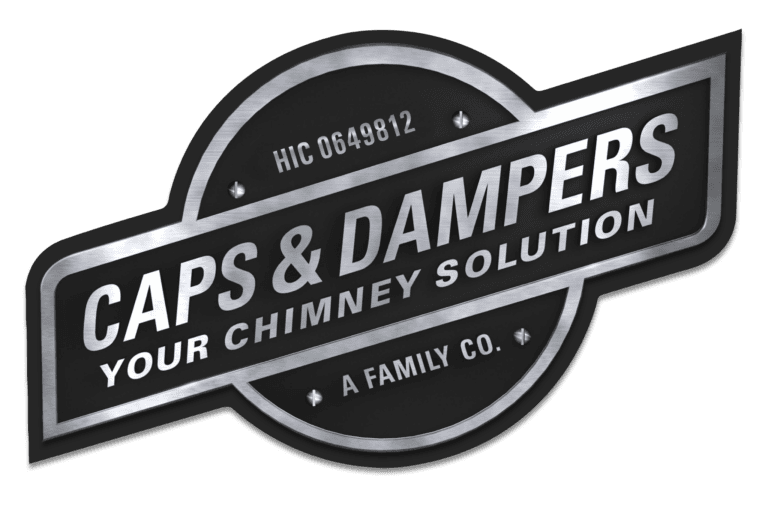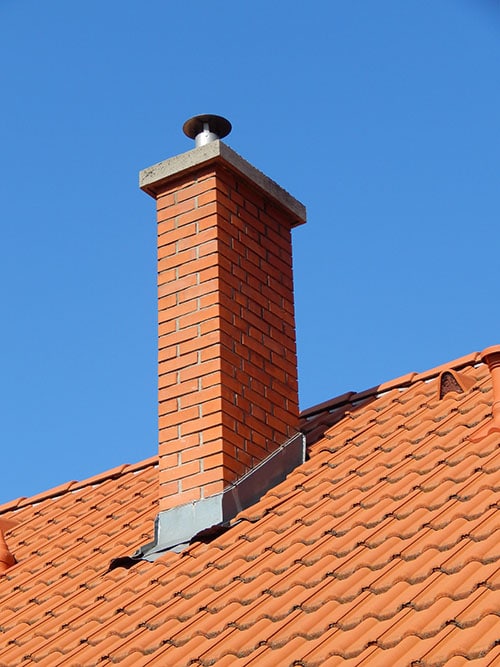If you’re wondering if all chimney liners need to be cleaned, the short answer to this question is, most definitely, yes! Chimney liners play an important role in the safe, successful operation of your chimney and are the main factor in ensuring the safety of you and your family.
Where there is fire, there is also heat, smoke, and combustion. As heat and combustion byproducts found in smoke travel through your chimney system, the chimney liner protects your chimney walls and your home from damage.
If your chimney liner is absent or worn and damaged, heat can cause many problems, including house fires. Gases within the smoke are acidic and corrosive and can weaken exposed chimney walls. Without a functional chimney liner, you could find yourself with cracks in the mortar and other serious structural problems.
The solution is to have your chimney and the chimney liner, inspected and cleaned annually.
What is a Chimney Liner?
A chimney liner, as defined by the Chimney Safety Institute of America (CSIA), is a clay, ceramic, or metal conduit installed inside of a chimney, intended to contain the combustion products, direct them to the outside atmosphere, and protect the chimney walls from heat and corrosion. In other words, their main purpose is to insulate and protect the chimney.
The CSIA recommends that fireplaces should be cleaned when 1/8″ of buildup is evident inside the chimney and flue system. In actuality, cleaning should be done even if there is less than 1/8″ of buildup. Any soot and creosote accumulation can be enough to fuel a chimney fire that may damage the chimney or spread to the roof and home.
Does my Chimney Need to be Cleaned?
Wood burning fireplaces and stoves are a great way to reduce your energy costs and keep you warm in the winter; however, over time they can lose some of their operational efficiency and become unsafe should you neglect to schedule regular cleaning and maintenance.
When wood burns, it releases creosote, which is a byproduct of wood combustion that consists mainly of tar. Traces of creosote are found in the smoke that rises from wood-burning fires. When the smoke rises and mixes with cold air and water, it solidifies and sticks to the chimney liner. Creosote, is flammable and difficult to remove from a chimney flue and It doesn’t take long for this substance to cause a chimney fire.
Even heating appliances that run on gas require annual maintenance. Although gas burns cleaner than wood and doesn’t leave the same large amount of deposits, gas does leave a residue that should be cleaned periodically. Additionally, gas units should be inspected regularly to ensure that all fittings are tight and working properly to prevent a gas leak.
All units should also be inspected annually to remove any debris that can lead to obstruction including nests built by birds, squirrels or other small animals that enter the chimney and are unable to get back out.
For each type of chimney liner, there are different tools and methods for cleaning, and only professionals are qualified to safely remove creosote from a chimney flue or stove vent pipe. Just like a clay tile or masonry chimney, a chimney that has been upgraded or repaired with a metal chimney liner still requires maintenance. Often, the manufacturer’s warranty requires you to make sure the chimney is inspected and cleaned annually. It is equally as important to sweep the liner with the proper size and type brush. In this case, metal brushes are not ideal, instead special polypropylene bristle brushes will be used to sweep the liner clean and clear any build-up or debris.
Every fire-safety agency in the U.S. recommends that wood-burning fireplaces and stoves have their vent systems professionally cleaned on an annual basis. It is highly recommended that chimney maintenance is performed by qualified experts and best achieved through regular inspections, and mechanical sweeping.
When was the last time you had your chimney inspected and cleaned? Schedule your appointment with Caps and Dampers for your chimney cleaning and inspection today! For more information, call us at (860) 323-8123 or Schedule Online Now.


